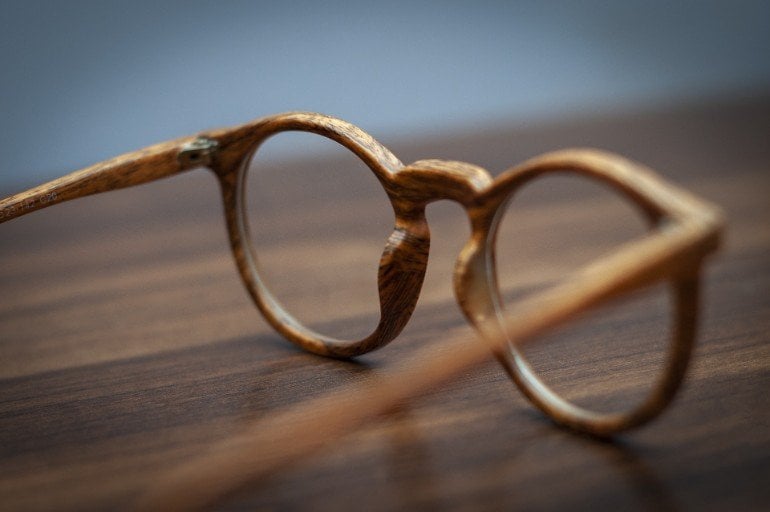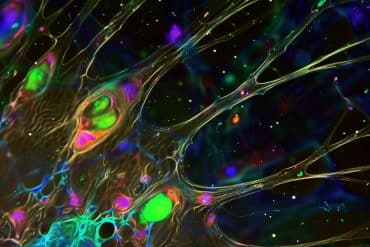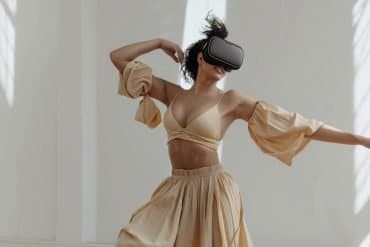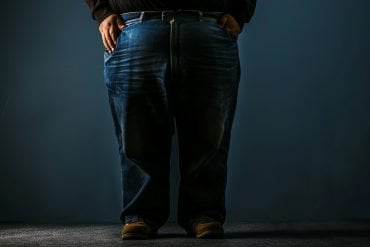Summary: Blue-light filtering glasses help improve sleep and work productivity, a new study reveals. The effects are most pronounced in those who consider themselves to be “night owls”.
Source: Indiana University
During the pandemic, the amount of screen time for many people working and learning from home as well as binge-watching TV has sharply increased. New research finds that wearing blue-light glasses just before sleeping can lead to a better night’s sleep and contribute to a better day’s work to follow.
“We found that wearing blue-light-filtering glasses is an effective intervention to improve sleep, work engagement, task performance and organizational citizenship behavior, and reduced counterproductive work behavior,” said Cristiano L. Guarana, assistant professor of management and entrepreneurship at the Indiana University Kelley School of Business. “Wearing blue-light-filtering glasses creates a form of physiologic darkness, thus improving both sleep quantity and quality.”
Most of the technology we commonly use — such as computer screens, smartphones and tablets — emits blue light, which past research has found can disrupt sleep. Workers have become more dependent on these devices, especially as we navigate remote work and school during the coronavirus pandemic.
The media have recently reported on the benefits of blue-light glasses for those spending a lot of time in front of a computer screen. This new research extends understanding of the circadian rhythm, a natural, internal process that regulates the sleep-wake cycle and repeats roughly every 24 hours.
“In general, the effects of wearing blue-light-filtering glasses were stronger for ‘night owls’ than for ‘morning larks,’ said Guarana, who previously has studied how lack of sleep affects business decisions, relationships and other behaviors in organizations. “Owls tend to have sleep periods later in the day, whereas larks tend to have sleep periods early in the day.
“Although most of us can benefit from reducing our exposure to blue light, owl employees seem to benefit more because they encounter greater misalignments between their internal clock and the externally controlled work time. Our model highlights how and when wearing blue-light-filtering glasses can help employees to live and work better.”
The findings appear in the paper, “The Effects of Blue-Light Filtration on Sleep and Work Outcomes,” published online by the Journal of Applied Psychology. Guarana is the corresponding author; his co-authors are Christopher Barnes and Wei Jee Ong of the University of Washington.
The research found that daily engagement and performance of tasks may be related to more underlying biological processes such as the circadian process.
“Our research pushes the chronotype literature to consider the relationship between the timing of circadian processes and employees’ performance,” the researchers wrote.
A good night’s sleep not only benefits workers; it also helps their employers’ bottom lines.
“This study provides evidence of a very cost-effective means of improving employee sleep and work outcomes, and the implied return on investment is gigantic,” said Barnes, professor of management and the Evert McCabe Endowed Fellow at the University of Washington’s Foster School of Business. “I personally do not know of any other interventions that would be that powerful at that low of a cost.”
Across two studies, researcher collected data from 63 company managers and 67 call center representatives at Brazil-based offices for a U.S. multinational financial firm and measured task performance from clients. Participants were randomly chosen to test glasses that filtered blue light or those that were placebo glasses.

“Employees are often required to work early mornings, which may lead to a misalignment between their internal clock and the externally controlled work time,” the researchers said, adding that their analyses showed a general pattern that blue-light filtration can have a cumulative effect on key performance variables, at least in the short term.
“Blue-light exposure should also be of concern to organizations,” Guarana said. “The ubiquity of the phenomenon suggests that control of blue-light exposure may be a viable first step for organizations to protect the circadian cycles of their employees from disruption.”
Funding: Researchers received no financial support or compensation for this research. The glasses were donated by the Austin, Texas-based company Swanwick.
About this neurotech research news
Source: Indiana University
Contact: Indiana University
Image: The image is in the public domain.
Original Research: Closed access.
“The effects of blue-light filtration on sleep and work outcomes” by Guarana, C. L., Barnes, C. M., & Ong, W. J. Journal of Applied Psychology
Abstract
The effects of blue-light filtration on sleep and work outcomes
In this article, we investigate the effects of blue-light filtration on broad attitudinal and behavioral outcomes (i.e. work engagement, organizational citizenship behavior, and counterproductive work behavior). Drawing on recent developments in the circadian process literature and its related research on chronobiology, we propose that a cost-effective sleep intervention can improve multiple organizationally relevant outcomes. Specifically, we theorize that wearing blue-light filtering glasses creates a form of physiologic darkness, thus improving both sleep quantity and quality. We then argue that wearing blue-light filtering glasses is related to work engagement, task performance, and nontask performance via sleep quantity and sleep quality. Considering that individuals vary in the timing of their circadian process, we propose that chronotype is a first-stage moderator for our theoretical model. We tested these theoretical expectations in 2 experimental experience sampling studies. In Study 1a, we collected data from 63 managers (519 daily observations) and found that wearing blue-light filtering glasses is an effective intervention to improve physiological (sleep), attitudinal (work engagement), and behavioral (task performance, organizational citizenship behavior, and counterproductive work behavior) outcomes. In general, the effects were stronger for employees who tend to have sleep periods later in the day. In Study 1b, we collected data from 67 call center representatives (529 daily observations) and measured task performance from clients. We replicated most of the findings except for the interactions. Our model highlights how and when wearing blue-light filtering glasses can help employees to live and work better.







